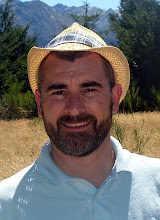"As a Nurse, what legacy do you hope to leave for the future?"
She sits in the semi-dark, her child asleep in the crib next to her. I can tell by the stormy look on her face, and the way in which she holds her body, that she is both physically and emotionally exhausted. I had heard from the night shift nurse that she was one of those parents that had done their research. She asked questions, constantly. I got the feeling that this mother intimidated my colleague a little. Sitting there, she just looks wiped out.
“You’ve probably heard we are the P.I.A. family” she says, a little abruptly.
“The what?” I answer, not recognizing the abbreviation.
“That we are a pain in the a**…” she replies with some sadness.
“Gosh, no. I don’t believe I was told that” I reply, “I think what I heard was that you ask the tough questions, and that can freak some of us out a little” I admit.
As the conversation unfolds, there in the early morning darkness of a shared room, I hear the pain of this family’s recent discovery that their daughter, a sweet-faced two-and-a-bit year old, has a brain tumor. We talk more, she asks – I answer. It is easy to see that she has almost run out of strength, so I excuse myself, telling her I’ll be back.
But, I stop myself at the door and go back.
“You know you’re doing a really good job, don’t you?” I ask. Her face falls, her shoulders slump in relief. “This is really hard stuff – you’re doing fantastically,” I go on. “Your baby is sick – you’re doing what you are supposed to do; you have to know you’re in the right place, and have done the right thing. You know we see that, right?”
Webster (1989) describes “legacy” in two ways: the first can sound like it is talking only about money; “an inheritance to be gained by the next generation.” The second description is perhaps more appropriate to this essay: “anything handed down from, or as from, an ancestor.”
It is rare that we ask ourselves how we want to be remembered in terms of our nursing. I believe that we are more comfortable thinking of ourselves – and our legacies - in terms of any of our other incarnations: as mother, wife, or daughter. As father, husband, or son. Rarely do we think of ourselves – or are we asked to think of ourselves - as a professional ancestor in the making.
Nursing has few namable and relevant ancestors. Florence Nightingale and her lamp are a very long way from anything like our modern day experience. Even the primary nurse, as constructed by nursing intellectuals twenty-or thirty-something years ago, is, I would suggest, an almost non-existent entity in the current profit margin-driven health care climate.
So perhaps instead of looking back, we need to look forward. The nurses of tomorrow are going to be what we make them. The ancient sage Hillel said (and I paraphrase) – “If not us, who? If not now, when”? I believe the time is now. I believe it is up to us. It is up to us to make our mark – whether or not we are ever published, quoted, or canonized.
In the near-twenty years that I have been “a nurse,” I have come a long way. From a small New Zealand town I have made it a point of taking huge steps across oceans, land masses and cultures to give myself what I feel is an optimum personal library of nursing care experience to call on. And it is this that I hope to pass on to the future generations of nurses.
This is not by accident, nor is it without guidance. I was fortunate enough to acquire a mentor when I was a second year nursing student. She was – and is - like no other nurse I had ever met. She was – and is – a tower of nursing strength. She strove to make every interaction a therapeutic one. Her approach was first and foremost holistic, and she not only asked questions, but invited them. She didn’t teach me to start an IV, or dress a wound – she taught me to think, and to feel – and to trust what I felt. I am the nurse I am because of her encouragement that I go out and seek my true nursing self.
Nursing was, for her and now is for me, not about the multiple complex tasks that we perform every day. Rather, is about the stormy subtleties of the human condition. We are offered the opportunity to explore, assist, and support patients and their families in their illness experience. It is in the gentle supportive and essentially human interactions, such as a simple acknowledgment to an anguished parent that she is, indeed, doing a good job, that we create our nursing legacy. Setting this example – by being this type of nurse - we pave the way for future generations of nurses.
More that anything else - more than perfecting skills and mastering procedures – I hope that I am able to pass on the humanity of what it is we do. In nursing we are given the unique and sacred opportunity to really care for sick children and their families. I believe that our legacy will be found in our mentorship of the next generation of nurses. By passing on “nursing care values” to our colleagues, we create a legacy in care.
It is not the IV start, or the dressing change the families will remember. It is the quiet, caring conversation we hold in the semi-dark room that is the compassionate nurse’s lamp. It is by “stepping up” to the opportunities presented in these interactions that we perpetuate true nursing. This is this legacy-in-care that I hope to leave for the future.

